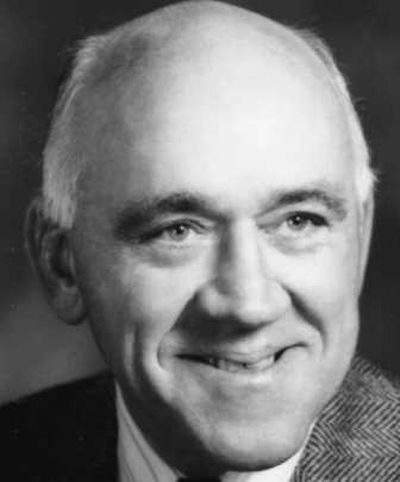Kopczynski’s legacy lives on in landmarks, the arts

Prominent Spokane builder and arts supporter Bernard Michael “Kop” Kopczynski died Thursday after a long illness.
Kopczynski, 89, constructed or rehabilitated landmarks throughout the Inland Northwest, everything from the Marcus Whitman Hotel in Walla Walla to the original Sun Mountain Lodge near Winthrop to the Dick’s Hamburgers Drive-in on East Third Avenue in Spokane.
Kopczynski Construction, which he started in 1948 as a cabinet maker with a $500 loan from a friend, also built 43 post offices from Montana to Alaska, several Expo ‘74 pavilions and what is now the Doubletree Hotel Spokane, said his son Chris Kopczynski, who worked alongside his father.
“His life’s passion was building and construction,” said Chris, adding that his father considered the presidency of the Inland Empire Associated General Contractors in 1978 a career high point. He also served on the board of the national association.
The senior Kopczynski, a self-taught musician, also chaired the Washington State Arts Commission and presided over the board of the Spokane Symphony.
Past and present symphony staff and trustees had nothing but praise for Kopczynski, who they said led the organization through difficult times in the 1980s. He continued, with his wife, Maxine, to be a faithful supporter until the end.
“He was an amazing man,” said Catherine Moye, formerly on the symphony board of directors. “He and Maxine are two of the reasons that the symphony and arts in Spokane are what they are today.”
Most recently, Kopczynski used his expertise to help the symphony determine whether the Fox Theater could be reborn as the orchestra’s concert house, said Bill Simer, who was president of the symphony trustees in the early stages of the building’s restoration.
Unfortunately, said Chris Kopczynski, his father was too ill to see the recently finished theater in its renewed glory.
Kopczynski won numerous awards for his arts patronage, including the 1998 Spokane Arts Commission’s individual benefactor award that he shared with Maxine, and the Bravo Award for arts support in Spokane in 2000. The Kopczynskis were also longtime patrons and trustees of Hutton Settlement.
“They were very much a team,” said Chris, noting that his parents were married 66 years.
Besides Chris, Kop Kopczynski is survived by a son, Cary, and three daughters, Dawne Drake, Elizabeth Moore and Susan Jostrom.
In retirement, Kop carved 40-foot cedar totem poles for each of his children. He and Maxine put one on a trailer and hauled it to Dawne’s New Jersey home.
“He was just a tremendous family man,” Chris said.
When Chris, at age 15, told his father he wanted to climb mountains, his only response was, “I strongly encourage you to take a Geiger counter.” The message: You’ll have to pay for it yourself.
Chris Kopczynski in 1971 became the ninth American to summit Mt. Everest.
Kop Kopczynski was born in Cottonwood, Idaho, on April 3, 1919. He was one of 12 children and the only one to leave Cottonwood, Chris said. Kop’s parents’ families lost everything in the Great Depression, and Kop constantly reminded his own children of the value of work.
Although he planned to become a priest, when World War II began Kop journeyed to Geiger Field to take a pilot’s test for the U.S. Army Air Corps. He was one of three in 200 to pass, and he went on to teach others how to fly B-17s and B-29s.
“He felt proud to be part of America’s Greatest Generation,” Chris said.
Symphony Executive Director Brenda Nienhouse called Kopczynski a tireless advocate who not only donated financially but also volunteered.
“He really rolled up his sleeves and did a lot for the organization,” Nienhouse said. “There’s a lot of love for Kop.”